Is CBS blocking the way for more on-campus teaching?
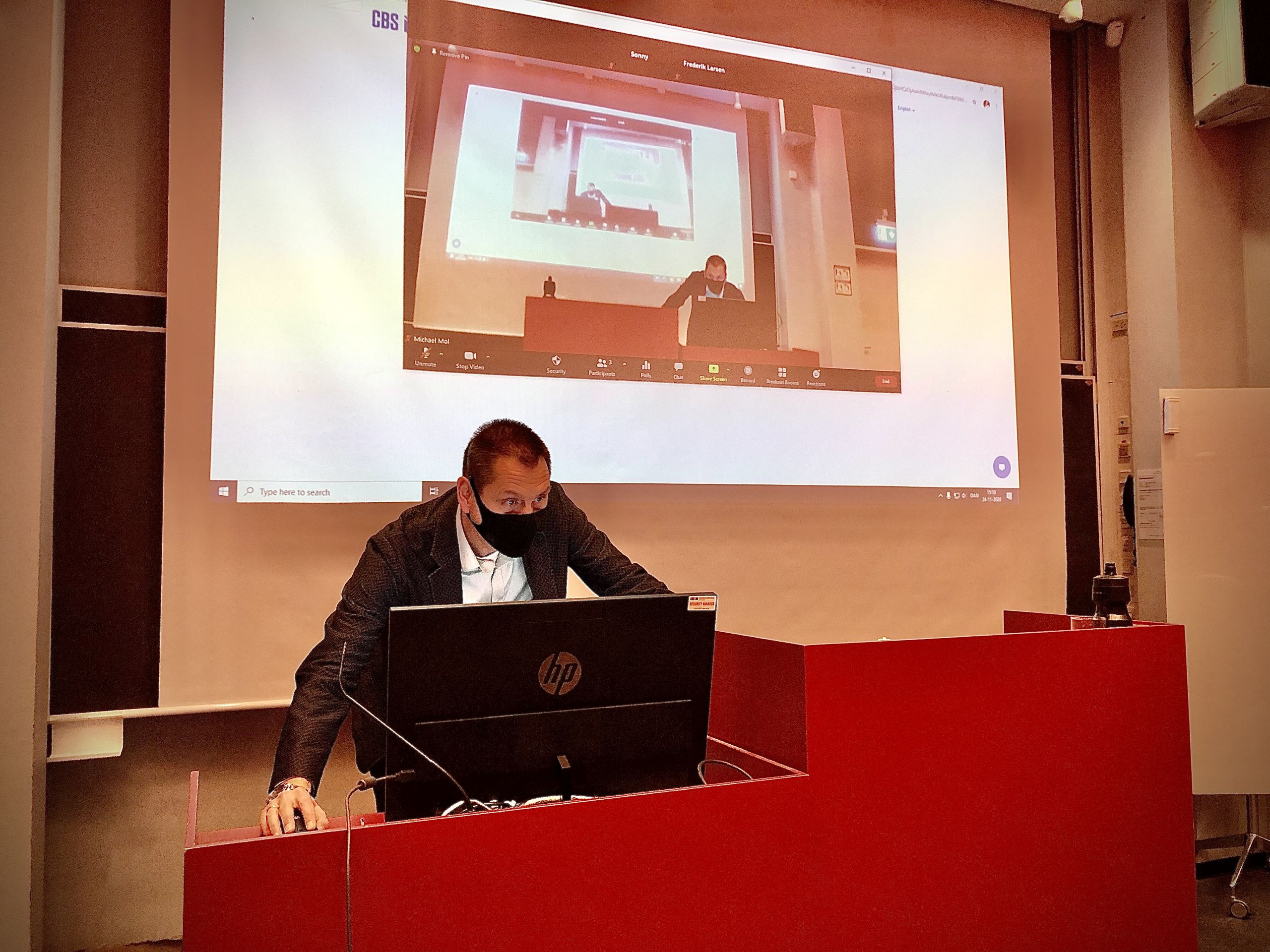
Michael Mol, Professor from the Department of Strategy and Innovation uses video conference equipment for his on-campus classes. This allows for students who don't feel comfortable about showing up on campus to participate from home. (Photo: Anne M. Lykkegaard)
More flexible room planning and a sign-up system could be ways to make more teaching activities available on campus, suggests Professor Michael Mol, who feels recognition from the Senior Management for his own and his colleagues’ teaching efforts this year has been sadly lacking.
When Professor Michael Mol goes to CBS to teach, he brings along a box of equipment. The box contains video conference gear for so-called bi-modal teaching, a camera and a super-sensitive microphone. All these must be set up in the classroom before he can begin streaming his teaching sessions.
With all that in place, Michael Mol can teach face-to-face, while students who are not comfortable about showing up on campus, can join in from home.
“With this solution, I achieve the 50/50 requirement, plus I’m giving better service to students who prefer to stay at home, while students who prefer face-to-face teaching get that. And it’s better for me as well. I would love to teach all my classes like this,” he says.
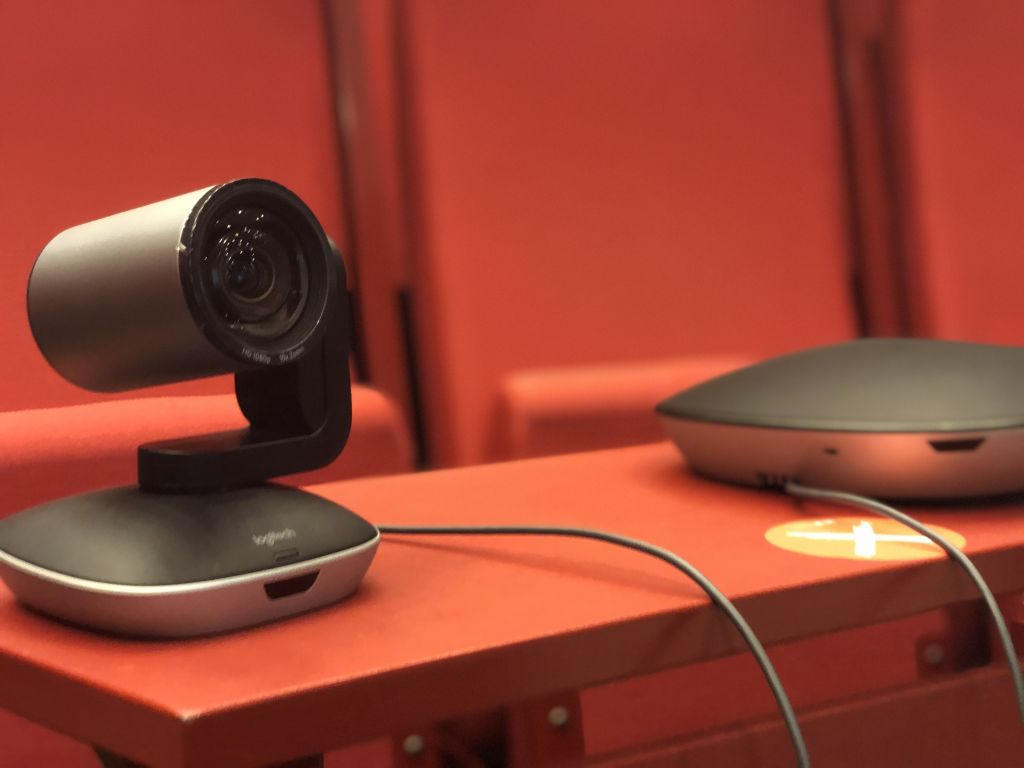
With this setup, Michael Mol is able to live-stream his session to students at home with a decent quality of video and sound. (Photo: Anne M. Lykkegaard)
Michael Mol, who is from the Department of Strategy and Innovation, thinks CBS has been too dogmatic about the 50/50 division between on-campus and online teaching this semester.
“I understand if, for different reasons, colleagues are unable to teach on campus, but I think CBS should better accommodate people like me who enjoy teaching face-to-face. For example, I wouldn’t have to bring this box on my bike, and install and uninstall the equipment every time, if the equipment was already available in most classrooms. That would be great. CBS has had plenty of time to do that,” he says and adds:
“Yes, it would be an investment, but it’s an investment that will pay off in the long run. Even after corona, we will probably be more online anyway.”
In general, Michael Mol has several suggestions for making on-campus teaching more available while meeting the restrictions in place – for the benefit of teachers who like to teach face-to-face and for students who prefer that teaching format.
Inflexible systems
Michael Mol explains that when a class is being taught on campus, the classroom booked must fit the entire class. However, Michael Mol often experiences that not all students show up for classes, leaving the classrooms emptier than they already are with every other seat blocked to meet the distance requirements.
“The room planning assumes everyone attends classes – but that assumption simply does not match reality. Especially not now. Many students don’t attend classes, which leaves rooms very empty – and that’s not a super inspiring teaching environment,” says Michael Mol and has an idea.
“Just like you sign up for gym classes, I think we could work with a kind of sign-up system. Then we know how many people plan to attend, and can book a suitable room for that number – and still respect the distance requirements. Right now, the system is just very inflexible.”
In general, Michael Mol suggests CBS should conduct a survey among staff and students to reveal the need for face-to-face and online teaching. Then it would be clearer how many teachers, like Michael Mol, prefer to teach on campus, how many prefer the online formats, and the same goes for students.
“I think CBS could do some of these things so we have a better idea of attendance and under what conditions. But I would also say the system needs more flexibility so that it can meet people’s needs. Both those who want to be online, and those who want to be on campus. I think that would ultimately provide a better teaching product,” he says.
“Now wouldn’t be a terrible time”
Michael Mol’s experience of online teaching predates the lockdown, so when the country closed down in spring, he was not exploring new territory. Still the conversion in spring and meeting the teaching principles for this semester have resulted in Michael Mol and his colleagues putting extra time into planning and developing their teaching.
In fact, according to a CBS survey made in the summer, 90 percent of VIP staff reported that they had been using more time on teaching. The figure was 76 percent for DVIP personnel. In total, 323 teachers completed the survey.
And Michael Mol feels as if CBS’ Senior Management does not fully understand what that extra effort entails.
“All my colleagues have put extra time into teaching this and last semester. And a lot of emotions have been involved too. More stress about whether your connection is working and so on. This effort is not fully understood. I don’t feel enough is being said or done. You get the occasional email, but does the administration really understand what we are doing?” he asks.
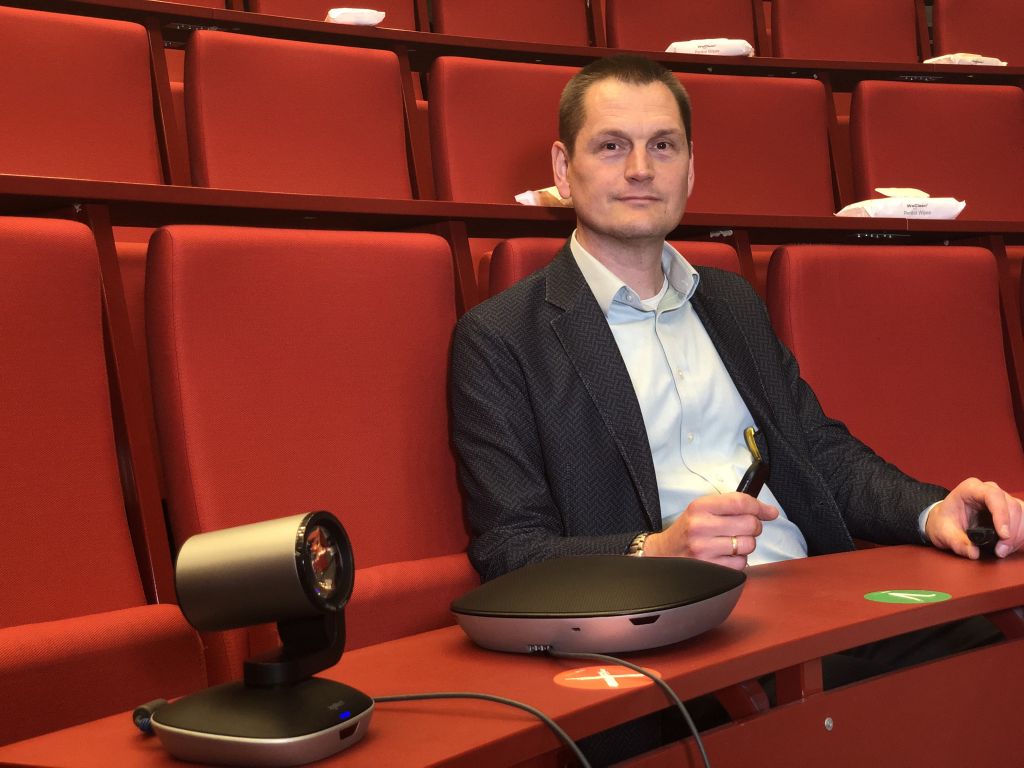
Professor Michael Mol teaches the course Advanced Strategy, (Photo: Anne M. Lykkegaard)
What could CBS do to show some appreciation?
“In one sense, they have done something. We get additional hours in our teaching system if we do blended learning. So there is a way to reward effort. For example, in the Netherlands, where I’m from, at Christmas people get a gift from their employers. Now wouldn’t be a terrible time to show some appreciation. Just a CBS coffee mug or something. It’s just a symbolic action that I’m not seeing,” he says and continues:
“Just to show there’s light at the end of the tunnel. They could do that a bit more. Maybe promise that when things go back to normal, we’ll have a party to celebrate.”
He also wishes CBS was better at sharing success stories from colleagues who have done something that worked well for their students and general stories about people’s efforts during the pandemic.
“The appreciation we get is not specific, and I think it would be nice to hear stories about what colleagues have achieved with success. Locally, there is better appreciation than what we get from the top of the organization. I think a lot of people feel the same way,” he says.
CBS WIRE has reached out to Gregor Halff, the Dean of Education, and presented him with Michael Mol’s suggestions and comments. Gregor Halff did not wish to respond at this time.



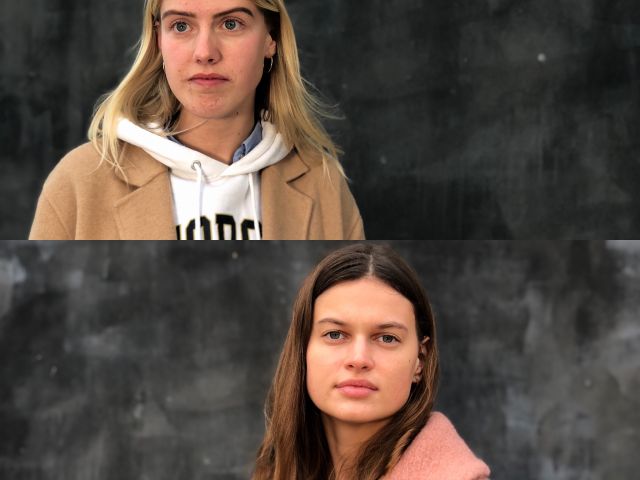
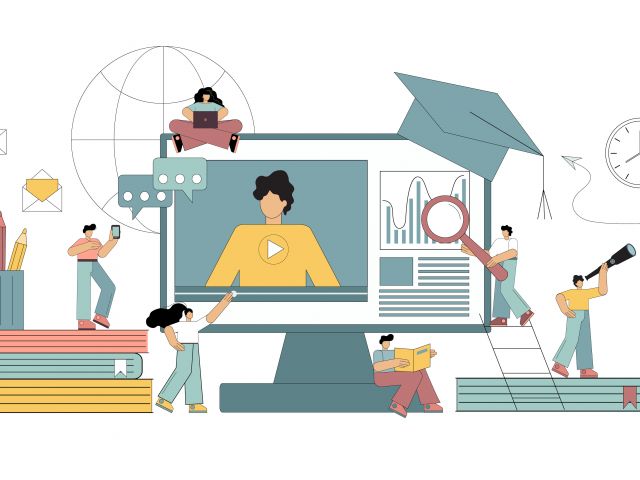

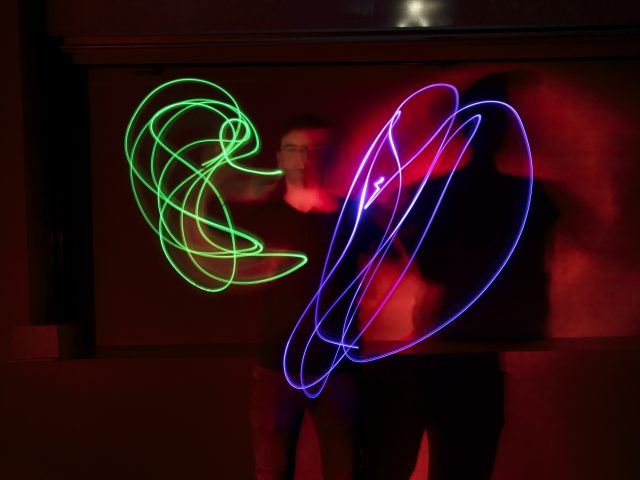

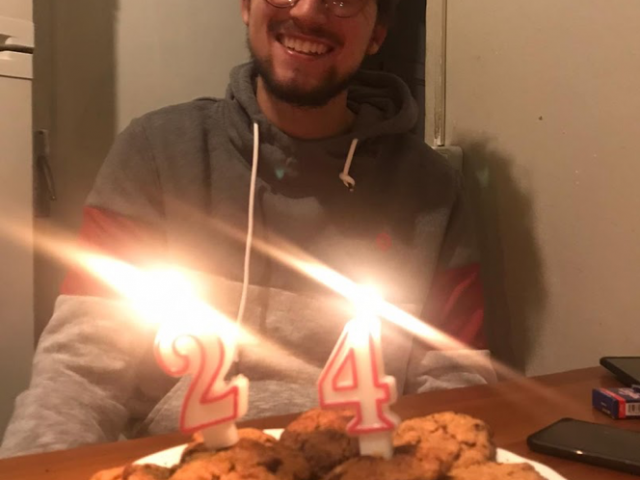
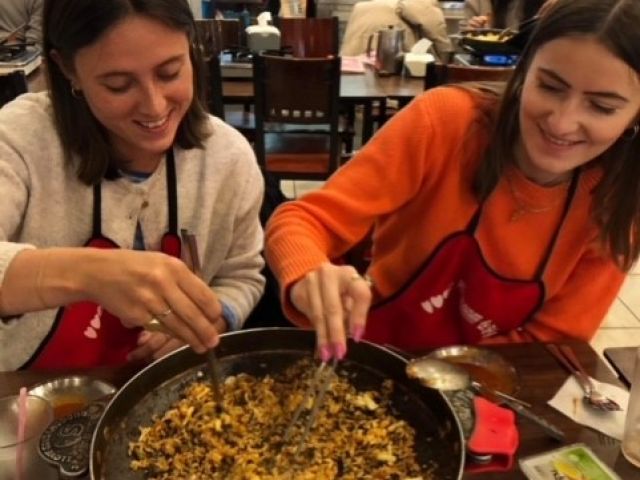




























































































































Comments